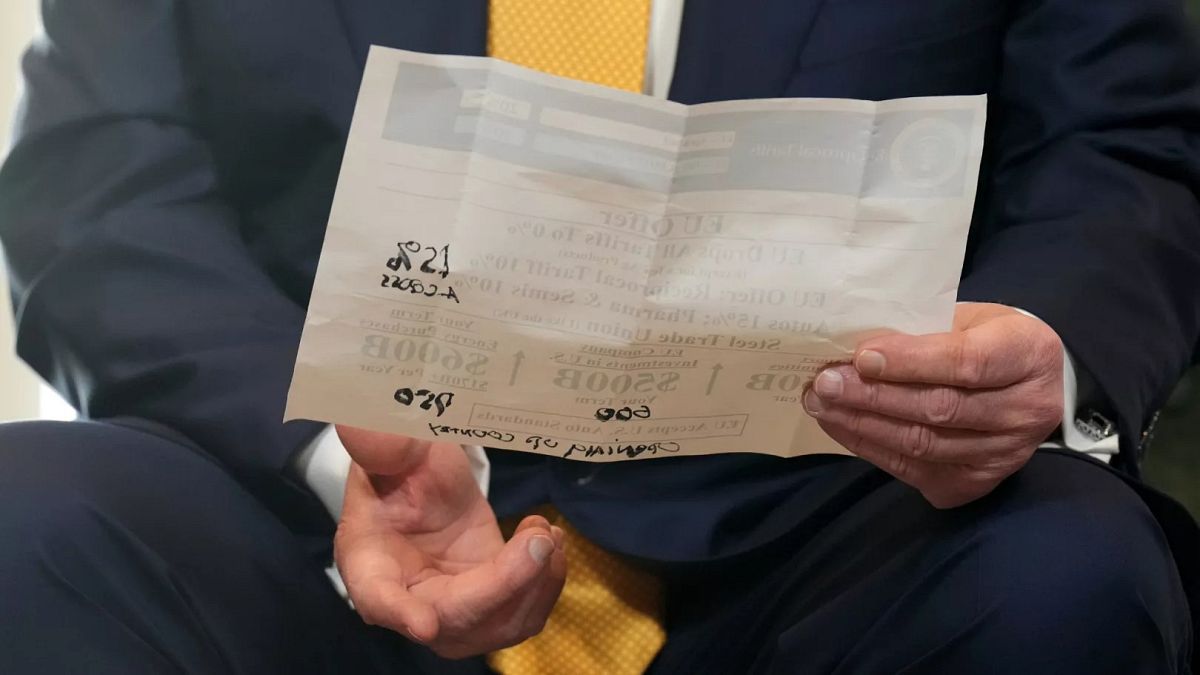Published on
•Updated
The impact of a tentative trade deal struck by the European Union and United States on European consumers will be limited, experts have said.
On Sunday, the US and the EU agreed to a deal in order to avoid a trade war between the world’s two largest economies, warding off US President Donald Trump’s threat of 30% tariffs on most European goods if no deal was reached by 1 August.
Under the preliminary agreement, around 70% of EU exports bound for the US will now be subject to a 15% tariff. The remaining 30% of goods are open to further negotiations.
The EU has not put in place any tariff barriers targeting American products, so their prices will not rise in Europe.
“The impact on European consumers will be limited,” Agustín Reyna, Director General of the European Consumers’ Organisation (BEUC), said.
“Customs duties are paid by the importer. In this case, the 15% tax that the United States imposes on EU products applies to American importers. So that means that certain products could become more expensive for American citizens”, Reyna told Euronews.
Increase in Chinese products
In the long term, Chinese products currently exported to the United States could find their way onto the European market, which could lead to lower prices in Europe.
“The main effect will be a drop in demand for European products in the United States, less demand for Chinese products in the United States, and this means that these products will then try to find a market in Europe, which will generally lead to lower prices,” Niclas Poitiers, a researcher at Bruegel, told Euronews.
These lower prices for European consumers would however be bad news for certain businesses.
“There are certain companies that are in direct competition with Chinese competitors. And for these companies, they could face stronger competition and they could also have difficulty with these lower prices. So there is a negative effect,” Poitiers said.
Drop in demand for EU products in the US?
European companies exporting to the United States risk facing a drop in demand on the other side of the Atlantic as their products risk becoming more expensive.
This could lead to a drop in their revenues and potentially jobs in Europe.
“There are certain companies in certain sectors, like pharmaceuticals, for example, where there is a large proportion of exports and employment for things that go to the United States. But for most sectors, this represents a small proportion of production,” Niclas Poitiers said.
As a result of the deal, Trump has expressed hope that foreign companies will be encouraged to open factories in the US to avoid paying customs duties.
However, the unpredictability of his agreements and the uncertainty surrounding the duration of these tariff barriers could, conversely, discourage European companies from investing in the US.
‘Counterproductive’
In Brussels, residents interviewed about the terms of the new agreement said they thought the deal would have little impact on their purchasing power.
“I don’t think it will have an impact on my daily life, maybe a little, but it will affect Americans more,” said Ian, from England.
He added: “I think tariffs are counterproductive. I think I’d prefer free trade and I think it’s damaging for Americans to impose tariffs on everyone.”
Carolina, an Italian citizen, believes that the trade agreement “will have an impact on everyone in different ways, depending on the areas in which we work and the lives we lead.”
The EU is too highly dependent on the US and should have greater economic autonomy, she said.
Read the full article here


